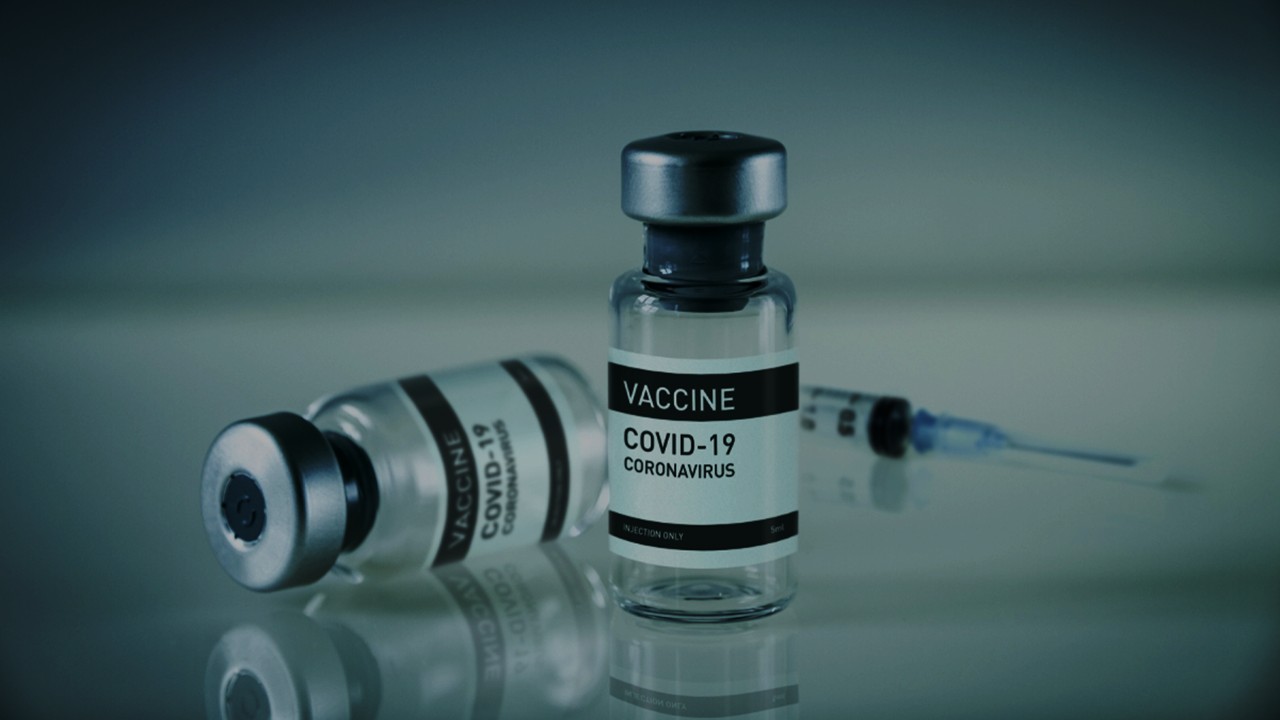Retention of patients can make or break clinical trials. Trials may encounter difficulties that have a detrimental impact on patient retention and seriously jeopardize their ability to be completed successfully. This article will cover this topic, going over elements that have an adverse effect on patient retention and the results for clinical studies.
Clinical Trials at a Glance
Clinical research trials are crucial for tracking the effectiveness and undesirable effects, as well as the interventions and treatments, of novel medications. Clinical trials include various phases, and their design, techniques, objectives, forms of assessments, selection plans, and the quantitative implications for the interpretation of the data acquired in the trial are all governed by stringent regulations. The overall safety and security of the study’s research participants are, in fact, governed by protocols.
Randomized clinical trials have evolved into the industry benchmark for design and implementation of clinical research in recent years. The internal reliability of the assessments is ensured by establishing control groups and randomly administering treatments to people. By this method, bias—a long-standing issue with clinical trials—is eliminated.
However, participants may find clinical trials to be costly, time-consuming, and onerous. Failure of a trial can result from a variety of circumstances, such as insufficient adequacy, potential hazards, disregard for advice given by regulatory agencies like the FDA, a shortage of funds, and a refusal to uphold and adhere to appropriate protocols. Every element of trial design must be optimized if clinical trials are to be made better and to ensure data integrity, outcome consistency, and final result repeatability.
The Centrality of Recruitment and Retention to Trial Success
Patient enrollment and retention are among the key elements that can determine whether a trial is successful or unsuccessful. The likelihood of coming up with an incorrect interpretation of insignificant differences between the control and experimental treatment groups, known as type 2 error or a false-negative, rises if the projected sample size is not properly satisfied. The retention of research participants is based on the enrollment of a sufficient number of individuals for the research study.
Also, if acceptable numbers of patient enrollment and continued participation are not satisfied, the clinical study period may need to be prolonged, which could have an impact on study costs. Effectiveness of treatments can be a source of ambiguity, which can cause further bottlenecks in the creation of critical medications, therapeutics, and healthcare interventions. If trial proof and data are collected slowly, the stakeholders financially backing the study may become less confident, which could result in the adoption of less trustworthy but quicker evaluation techniques.
Challenges in Patient Enrollment and Engagement
Addressing the challenges that both clinical trial participants and investigators experience is indispensable because patient retention is so pivotal. A more successful trial design may be accomplished by considering them. So, by comprehending these obstacles and developing plans to overcome them, the accuracy of data acquired and the success of medical treatments are reinforced.
The retention of patients in clinical trials presents many obstacles. These obstacles include worries about health risks, apprehension about experimental procedure, poor adherence to the protocol, absence of necessary informed consent procedures, the trial’s legal methodologies, lack of education, language barriers, a failure to receive encouragement from loved ones, discouragements from physicians, a lack of a focused approach to the client’s condition by researchers, financial difficulties, issue of relocating, work commitments, social and religious concerns, a lack of observable therapeutic effects, retention concerns with geriatric and pediatric populations, and unfavorable media coverage.
Worries about health risks. Reluctance to participate in a clinical trial is primarily because of the potential adverse effects of experimental medications or treatment procedures. With news of product recalls and the fear to be the next in the long line of the hospitalized with incorrect medication use, who could blame trial volunteers to not focus on the positive outcomes and instead on the negative consequences of drugs, how much more those which are still investigational?
Apprehension about experimental procedure. The human autonomic nervous system maintains not only normal functioning of our physiology but also of genetically ingrained means of the survival of our species. In turn, this has helped us to survive with our body’s automatic responses to certain stimuli as in the case of reflexes. By default, we are wired to seek comfort and avoid pain and hence, an experimental procedure’s invasiveness coupled with the length of time it is performed are surely a “no, no” to most, if not all, trial participants.
Poor adherence to the protocol. Compliance is one the main reasons why antibiotic resistance is a growing concern. The failure to take the right amount of medication at the right time everyday for a specified week, even for just a week, has been disadvantageous to the human race with bacterial progenies getting smarter as we speak. Blame it on evolution. This goes without saying that since some trial participants, especially those disease diagnosed in Phase 2, are in the terminal case of morbidity, adherence for the very sake of survival might not be something we can strongly bank on.
Absence of necessary informed consent procedures. If your brother can’t go in your room because you say so, then that’s one thing he needs to learn about consent. This issue is even more magnified if people will be poking on you and sticking needles to wherever is needed in the body. Now if there is lack of acquisition and documentation of informed consent for the clinical research study, guess we could definitely expect patient’s withdrawal from participation.
Trial’s legal methodologies. It is a moral imperative for clinical trial investigators to elucidate the legal aspects of the study, whether that be for a medical device, an investigational new drug, or a new drug combination that would put a halt to refractory responses or simply improve clinical outcomes like significant blood pressure lowering. No matter the result of the investigation, however, patients should be clarified about which aspects of the trial are they liable and which aspects they are not. Failure to do so would incur massive legal damages to either or both parties. In addition, patient confidentiality is a major cause for concern in the era of digitalization. If this aspect also doesn’t get the green signal, let’s say from all patients, no trial can actually commence.
Lack of education. Generally, people don’t involve themselves with things they haven’t fully understood yet. Whether that be blockchain, AI, or simply the stock market, there would be a significant reluctance expressed by those who aren’t fully well-versed as to what these are. In line with clinical trials, patients may not fully understand the study’s purpose, requirements, or potential benefits and risks, which can lead to uncertainty or reluctance to participate. And while it may be so that literacy has increased over the past few decades, it is never a good starting point to assume a person will have similar grasp as you, how much more with something as complex as the entire drug discovery and development endeavor.
Language barriers. Patients who do not speak the language used in the trial may have difficulty understanding the trial’s requirements and may be less likely to participate. Among the barriers to patient enrollment and retention, this is one of the key reasons why individuals would just opt out right from the start.
Failure to receive encouragement from loved ones. Lack of support or encouragement from family or friends may make patients less likely to participate in a trial. While not problematic with healthy Phase 1 patients, the morbidity inflicted population of Phase 2 would be more concerned about this.
Discouragements from physicians. Physicians who are hesitant about a trial may discourage patients from participating, even if they are interested in taking part in it. Worse, physicians may inadvertently share their biases against certain procedures, medications, companies, and even their personal take on the patient’s prognosis, eventually discouraging them to enroll.
Lack of a focused approach to the client’s condition by researchers. Patients may feel less motivated to continue in a trial if they do not feel that the researchers are fully focused on their particular medical condition or situation. What most clinicians fail to remember all the time is that everything they do must be for the betterment of the patient. And that patient, though rational and intelligent, is a human being with a complex set of emotions that must be well-taken into account in conducting these studies. It’s for the very same reason that you don’t like hearing a generic response to a specific question about your credit card issue to a customer service representative – personalized replies make you feel valued.
Financial difficulties. Certain aspects of the trial may be waived for the patient to accommodate them better. However, not every aspect can be dealt with as easily and one actual cause for concern is the money involved whether that be about doling out from one’s personal pocket or simply a basic issue of opportunity cost. Patients may be unable to afford the costs associated with participation in a trial, such as transportation or missed work.
Issue of relocating and work commitments. Patients may be required to relocate for the trial, which can be difficult or impossible for some individuals. This is in ties with the concern about financial instability. Work schedules may make it difficult for patients to participate in a trial, such as taking time off for appointments or procedures.
Social and religious concerns. Patients may have concerns related to social or religious beliefs that may impact their ability or willingness to participate in a trial. Some religions prevent drawing blood from the patient and all the more they are concerned when drugs and injected into their bloodstream. Additionally, as observed with the misinformation age, reluctance to vaccination may be a good basis for individuals to opt out participation in investigational trials of medications.
Lack of observable therapeutic effects. Not every scientific endeavor ends with success. As with some previous medications found to to only have equivalent efficacies as placebo, these clinical trials must be put to a halt and resources allocated to fund more productive investigational products. More importantly, if patients do not see observable therapeutic effects from the trial, they may be less likely to continue participating.
Commercially available treatments. The availability of numerous efficient medicines already on the market may have an impact on investigational drug trial retention. Due to the unpredictable efficacy and adverse effects of clinical studies, parents of children may be reluctant to enroll them. This is particularly troublesome for clinical studies involving rare disorders like acquired hemophilia, when the treatment may provide superior clinical results to the other options.
Retention concerns with geriatric and pediatric populations. Geriatric and pediatric populations may have unique retention concerns related to factors such as cognitive ability or parental consent. Studies on particular diseases are more likely to encounter retention obstacles than others. For instance, geriatric and older individuals are most affected by illnesses like Parkinson’s disease, prostate cancer, and Alzheimer’s disease. Due to health, financial, and ethical considerations, it can be difficult to find and manage older patients. Pediatric disorders like juvenile diabetes must be studied despite numerous obstacles. Due to the challenges in retaining and recruiting professionals, these studies are frequently open for extended periods of time. This may have an impact on how studies are now funded, for example.
Unfavorable media coverage. Negative media coverage about the trial or the sponsor can decrease patient willingness to participate. When social media misinformation is thrown in the mix, this becomes a ticking time bomb before every trial participant withdraws from the study.
Addressing Barriers to Patient Retention
Improving patient retention is essential for the development of new medications and therapies since it is a crucial component in assessing the effectiveness of investigational studies and clinical outcomes. Even though clinical trials are rigorous, time-consuming, and pricey, obtaining and keeping sufficient study participants will result in more accurate data and findings.
Too simplistic as one of the solutions may seem, spelling out the problem properly shows how easy some things can be remedied. Case in point, the engagement of patients is improved by working with patients and patient advocacy organizations. Clinical researchers ought to be open and honest about the goals and design of their studies. Lessening the load on patients by helping with finances and travel plans will prevent drop-out rates throughout the trial term. Patients will feel that clinical investigators value and listen to them more when they hear what they have to say and do something about it. Overall, patients are like all individuals – they need to feel empowered and self-reliant.
Decentralized trials have become more popular in the clinical environment, despite the fact that the COVID-19 pandemic first interrupted the conventional way of conducting investigations, which are typically performed in specific geographic locations. Using distant technologies like telemedicine, social media, internet access, mobile applications, and wearables allows for patient retention despite financial and logistical constraints. From the convenience of their own homes, patients can participate in clinical trials.
Clinical trials are also growing to be increasingly data-driven. Using data from mobile applications and smart wearable technologies makes it possible to gather valuable health information and patient sentiment, enabling prompt actions before retention becomes a serious problem. Patient safety, satisfaction, actionable outcomes, and more patient-focused studies can all be enhanced by real-world and real-time data collection.
In A Nutshell
The dependability of clinical investigation outcomes and effective research design rely on patient retention. To guarantee an adequate trial participant population and lower drop-out rates, obstacles must be removed that affect patient retention. Moreover, patient recruitment and retention are inextricably intertwined, with many problems affecting one often influencing the other. Effective use of emerging technology and data, transparency, information sharing, patient engagement, and excellent research methodology are all ways of boosting patient retention.
Subscribe
to get our
LATEST NEWS
Related Posts

Clinical Trial Supply Chain
Neural Freight: How Convolutional Models Are Reinventing Clinical Trial Logistics
CNNs are now driving smarter, faster, and more resilient clinical trial supply chains through pattern recognition and predictive optimization.

Clinical Trial Supply Chain
The Seasonal Genome: How Weather Patterns Rewrite Biotech Supply Chains
Seasonality affects biotech supply chains by altering raw material quality, destabilizing cold storage, and disrupting inventory timing, requiring predictive strategies to maintain product integrity.

Clinical Trial Supply Chain
Cold Routes, Critical Cargo: Rethinking Fleet Strategy in Oncology and Immunology Trials
The choice between dedicated and shared transportation fleets in oncology and immunology trials critically affects cost, logistics, and the integrity of highly sensitive biologic materials.
Read More Articles
Mini Organs, Major Breakthroughs: How Chemical Innovation and Organoids Are Transforming Drug Discovery
By merging chemical innovation with liver organoids and microfluidics, researchers are transforming drug discovery into a biologically precise, patient-informed, and toxicity-aware process.
Tetravalent Vaccines: The Power of Multivalent E Dimers on Liposomes to Eliminate Immune Interference in Dengue
For the first time, a dengue vaccine candidate has demonstrated the elusive trifecta of broad coverage, balanced immunity, and minimal enhancement risk,












